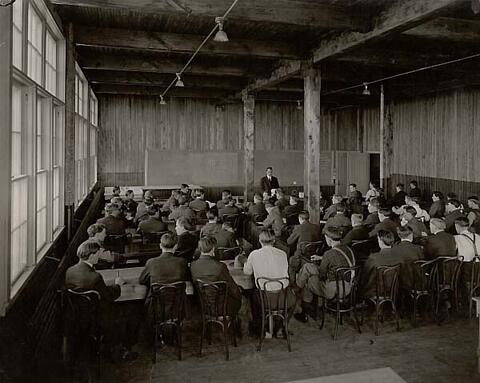
Área de título y declaración de responsabilidad
Título apropiado
Department of Field Husbandry - Class in Session
Tipo general de material
- Graphic material
Título paralelo
Otra información de título
Título declaración de responsabilidad
Título notas
Nivel de descripción
Item
Institución archivística
Código de referencia
Área de edición
Declaración de edición
Declaración de responsabilidad de edición
Área de detalles específicos de la clase de material
Mención de la escala (cartográfica)
Mención de proyección (cartográfica)
Mención de coordenadas (cartográfica)
Mención de la escala (arquitectónica)
Jurisdicción de emisión y denominación (filatélico)
Área de fechas de creación
Fecha(s)
-
[191-?-192-?] (Criação)
Área de descripción física
Descripción física
1 photograph : b&w ; 24.7 x 20.3 cm
1 negative : b&w ; 12.5 x 10 cm
Área de series editoriales
Título apropiado de las series del editor
Títulos paralelos de serie editorial
Otra información de título de las series editoriales
Declaración de responsabilidad relativa a las series editoriales
Numeración dentro de la serie editorial
Nota en las series editoriales
Área de descripción del archivo
Nombre del productor
Historial de custodia
Alcance y contenido
Field Husbandry (later Crop Science) class in session; view from back of class looking towards professor.
Bio/Historical Note: The Field Husbandry Building was conceived and constructed as a direct result of the fire that destroyed the Engineering Building in 1925. The Department of Field Husbandry, which had moved to Engineering four years earlier, lost its entire seed stock to the blaze. The Engineering Building that rose from the ashes was not, however, to include the Department of Field Husbandry. They were to have their own new and separate structure. Designed by David Brown, the stone clad structure was finished in 1929 at a cost of $260,000 and contained offices, classrooms and laboratories. The building also acted as a screen to mask the brick portion of campus from the buildings around the Bowl. In 1937 an addition, designed by local architect and University lecturer G.J.K. Verbeke, extended the building northward. The School of Medical Science moved into the addition from their cramped quarters in the College Building and stayed until the completion of the Medical College in 1950. Field Husbandry changed its name to Crop Science in 1962 and remained in the building until the College of Agriculture Building was completed in 1991. In 1997 the Department of Anthropology and Archaeology moved into the building, which was renamed accordingly. The Department of Anthropology was amalgamated with the Department of Religious Studies and relocated from the building in 2002; the building was subsequently renamed the Archaeology Building.

